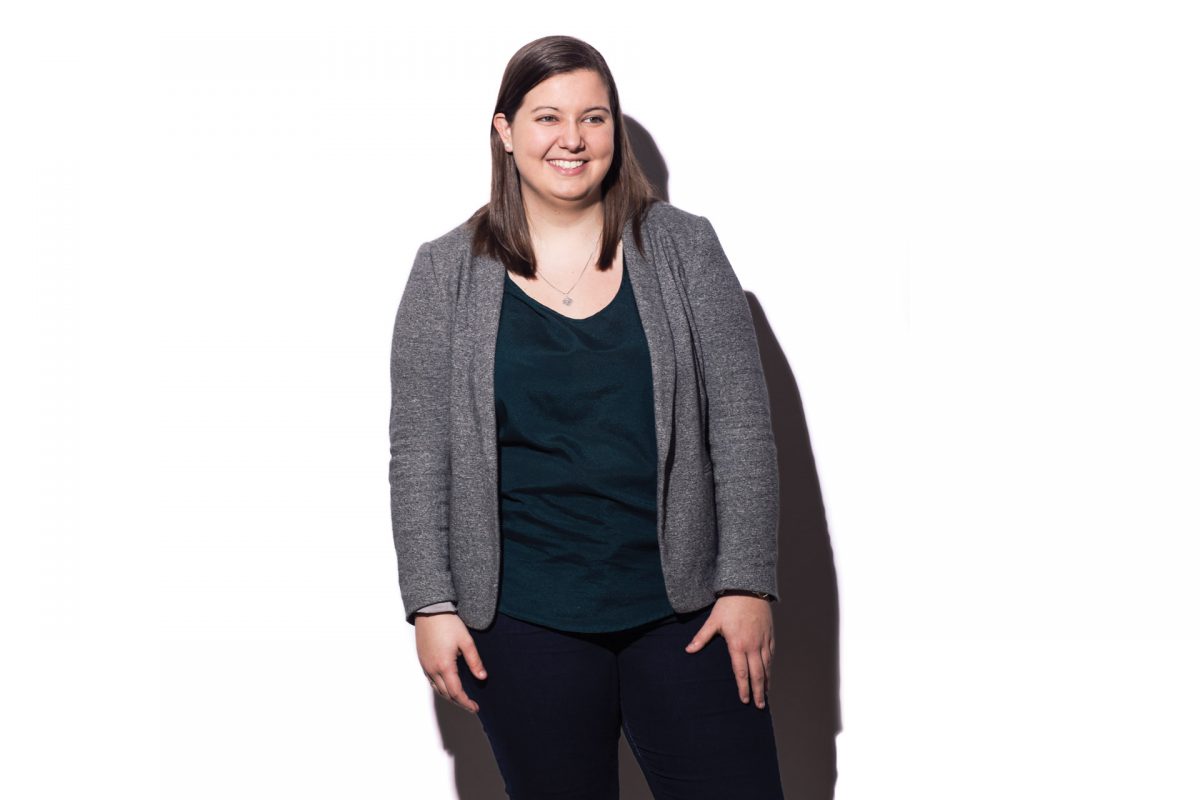Courtney Koepke is a Plan II Honors and biomedical engineering junior from Austin, Texas. She works as an undergraduate research assistant at UT Austin’s Laboratory of Biomaterials, Drug Delivery and Bionanotechnology.
What made you want to be a research assistant?
As a freshman entering college, I didn’t know much about research or understand the important role research plays in the continual advancement of society. At the beginning of my sophomore year, Nicholas Peppas spoke in one of my classes as a guest lecturer. I was intrigued by his work, so I went home and looked into the research being conducted in his lab. As I read some of the lab’s recent publications, I realized I wanted to be a part of the research being conducted and part of a group of individuals truly aspiring to change the world. The rest, as they say, is history.
What have you been working on?
My research focuses on plastic antibodies as a recognition element for disease because, over time, naturally occurring antibodies become unstable and useless for recognition. The goal of my research is to create a diagnostic tool to recognize protein biomarkers for disease. Using plastic antibodies as the recognition element in a diagnostic tool would allow for quicker and easier diagnosis of diseases such as multiple sclerosis, leukemia and meningitis.
Why is undergraduate research important?
I think research plays an important role for undergraduates as a tool for discovery. The motivating idea behind research is the discovery of new knowledge, which drives innovation and improvement in all areas of society. Being a part of that societal improvement and something bigger than oneself is something every undergraduate student can benefit from. Furthermore, research can assist undergraduates in self-discovery and allow them to uncover their strengths and weaknesses as well as likes and dislikes at an early stage.
What’s your proudest accomplishment?
I’m proud of the work my teammates and I did on an app called “Audiometry Made Easy.” I am the president of an organization called Texas Engineering World Health, which aims to create more equitable global health through medical technology innovation. Last year, my team and I worked to create a free application that could provide an audiometry test to assess hearing loss, especially in the developing world where a normal audiometer is an expensive and widely unavailable device. Our app is available on the Google Play store and has received feedback from people around the world.
How has being a liberal arts and Plan II Honors student influenced you?
One of the most significant ways being in Plan II Honors has affected my life is the exposure to a vast array of students from varying backgrounds. The culture encompasses a plethora of diverse opinions and areas of expertise that have challenged me and expanded my worldview.
Taking classes such as world literature and philosophy has helped me mature intellectually in ways my science and engineering classes never could have. These liberal arts classes have forced me to question society and how it’s structured, as well as humanity and what our duty to it is as individuals.
What is your advice to incoming students?
Follow your passions wherever they may take you. There’s a class, group or activity for every interest here at UT, so there’s no reason not to pursue your dreams.
